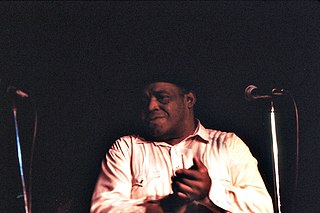
William James Dixon was an American blues musician, vocalist, songwriter, arranger and record producer. He was proficient in playing both the upright bass and the guitar, and sang with a distinctive voice, but he is perhaps best known as one of the most prolific songwriters of his time. Next to Muddy Waters, Dixon is recognized as the most influential person in shaping the post–World War II sound of the Chicago blues.

McKinley Morganfield, known professionally as Muddy Waters, was an American blues singer-songwriter and musician who was an important figure in the post-war blues scene, and is often cited as the "father of modern Chicago blues." His style of playing has been described as "raining down Delta beatitude."

Marion Walter Jacobs, known as Little Walter, was an American blues musician, singer, and songwriter, whose revolutionary approach to the harmonica had a strong impact on succeeding generations, earning him comparisons to such seminal artists as Django Reinhardt, Charlie Parker and Jimi Hendrix. His virtuosity and musical innovations fundamentally altered many listeners' expectations of what was possible on blues harmonica. He was inducted into The Rock and Roll Hall of Fame in 2008, the first and, to date, only artist to be inducted specifically as a harmonica player.

"You Shook Me" is a 1962 blues song recorded by Chicago blues artist Muddy Waters. Willie Dixon wrote the lyrics and Earl Hooker provided the instrumental backing; the song features Waters' vocal in unison with Hooker's slide-guitar melody. "You Shook Me" became one of Muddy Waters' most successful early-1960s singles and has been interpreted by several blues and rock artists.
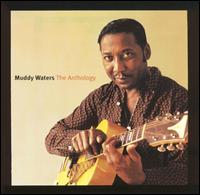
The Anthology: 1947–1972 is a double compilation album by Chicago blues singer and guitarist Muddy Waters. It contains many of his best-known songs, including his R&B single chart hits "I'm Your Hoochie Coochie Man", "Just Make Love to Me ", and "I'm Ready". Chess and MCA Records released the set on August 28, 2001.
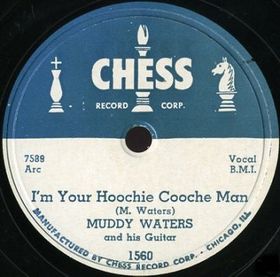
"Hoochie Coochie Man" is a blues standard written by Willie Dixon and first recorded by Muddy Waters in 1954. The song makes reference to hoodoo folk magic elements and makes novel use of a stop-time musical arrangement. It became one of Waters' most popular and identifiable songs and helped secure Dixon's role as Chess Records' chief songwriter.

William Robert Emerson, known during his recording career as Billy "The Kid" Emerson and more recently as Rev. William R. Emerson, is an American preacher and former R&B and rock and roll singer and songwriter, best known for his 1955 song, "Red Hot."

"Little Red Rooster" is a blues standard credited to arranger and songwriter Willie Dixon. The song was first recorded in 1961 by American blues musician Howlin' Wolf in the Chicago blues style. His vocal and slide guitar playing are key elements of the song. It is rooted in the Delta blues tradition and the theme is derived from folklore. Musical antecedents to "Little Red Rooster" appear in earlier songs by blues artists Charlie Patton and Memphis Minnie.

I Am the Blues is the sixth studio Chicago blues album released in 1970 by the well-known bluesman Willie Dixon. It is also the title of Dixon's autobiography, edited by Don Snowden.

The Best of Little Walter is the first LP record by American blues performer Little Walter. First released in 1958, the compilation album contains ten Little Walter songs that appeared in the Top 10 of the Billboard R&B chart from 1952 to 1955, plus two B-sides. The album was first released by Checker Records as LP-1428, which was the first LP record released by Checker, and then released on Chess Records with the same catalog number.

"My Babe" is a Chicago blues song and a blues standard written by Willie Dixon for Little Walter. Released in 1955 on Checker Records, a subsidiary of Chess Records, the song was the only Dixon composition ever to become a number one R&B single and it was one of the biggest hits of either of their careers.
"I'm Ready" is a blues song written by Willie Dixon and first recorded by Muddy Waters in 1954. It was a hit, spending nine weeks on the Billboard R&B chart where it reached number four. The song became a blues standard and has been compared to "Hoochie Coochie Man", the standard also written by Dixon that Waters recorded earlier in 1954.

"Just Your Fool" is a rhythm and blues-style song written and recorded by the American jazz and jump blues bandleader/pianist Buddy Johnson and His Orchestra in 1953. Called an "R&B anthem", the song has a big-band arrangement and his sister Ella Johnson on vocals—her "delicate and deceptively sweet phrasing was ideally suited to ballads such as this". "I'm Just Your Fool" became a Billboard R&B chart record hit, reaching number six in 1954.
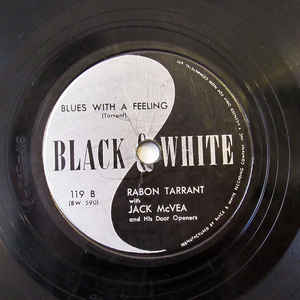
"Blues with a Feeling" is a blues song written and first recorded by Rabon Tarrant with Jack McVea and His All Stars in 1947, as the B-side of "Slowly Goin' Crazy Blues". Although the original release was commercially unsuccessful, the song later became an important hit for Little Walter, with whom it is usually identified.

His Best is a greatest hits album by Chicago blues harmonica player Little Walter, released on June 17, 1997 by MCA and Chess Records as a part of The Chess 50th Anniversary Collection. The album is seen as the CD successor to the 1958 The Best of Little Walter and features ten of the songs from that album.
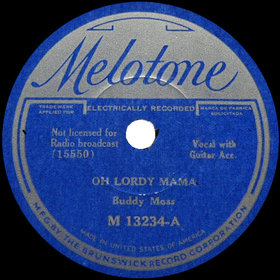
"Hey Lawdy Mama" is a Piedmont blues song recorded by Buddy Moss in 1934. The song became popular among jazz musicians with early recordings by Count Basie and Louis Armstrong. In 1943, a version recorded by Andy Kirk and His Twelve Clouds of Joy, with vocals by June Richmond, was a hit, reaching number four on the Billboard R&B chart.
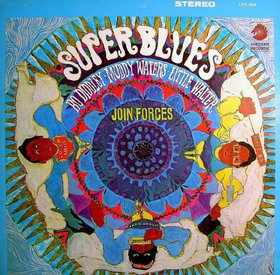
Super Blues is a 1967 studio album by a blues supergroup consisting of Bo Diddley, Muddy Waters, and Little Walter. The album was released in both mono and stereo formats by Checker Records in June 1967. A follow-up album The Super Super Blues Band was released later that year and featured Howlin' Wolf replacing Little Walter.
Oh Baby, O Baby, Ooh Baby, Ooh Baby Baby, or Ooh Ooh Baby may refer to:

"You Need Love" is a song with lyrics written by American blues musician Willie Dixon. The instrumentation was first recorded by slide guitarist Earl Hooker with backing musicians. Chicago blues artist Muddy Waters later overdubbed vocals and Chess Records released it as a single in 1962.

















